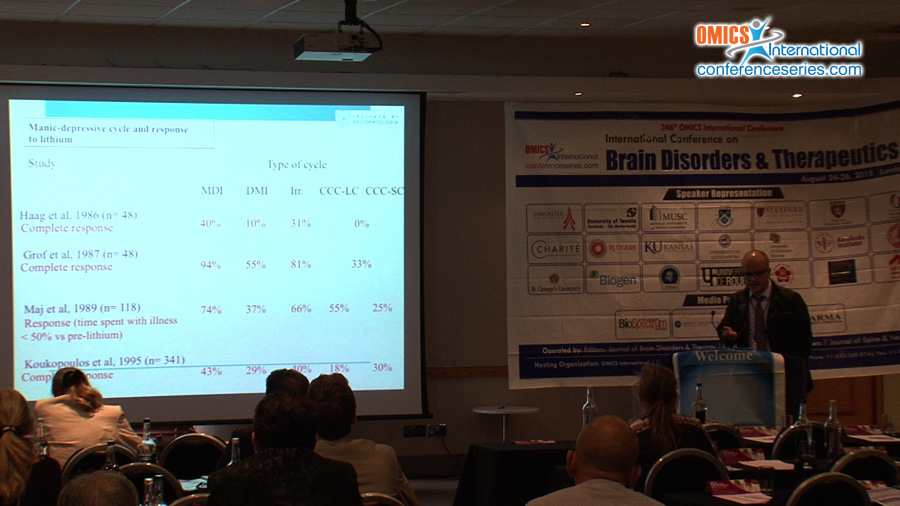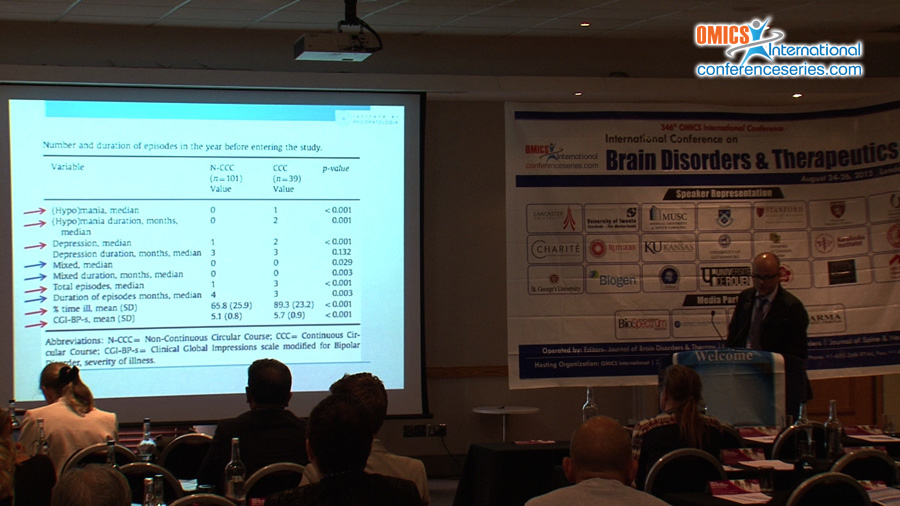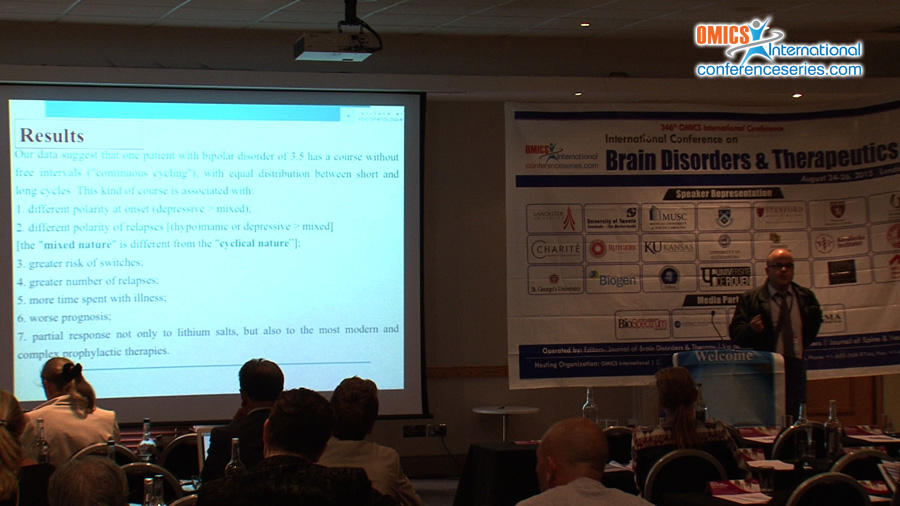
Rocco de Filippis
Institute of Psychopathology, Italy
Title: Variation in response to short-term antidepressant treatment between patients with continuous and non-continuous cycling Bipolar disorders
Biography
Biography: Rocco de Filippis
Abstract
Objectives The study aimed to compare effectiveness and safety of short-term antidepressant treatment between patients with continuous (CCC) and non-continuous (N-CCC) cycling bipolar disorders. Methods The study sample included 101 patients with bipolar disorder, 22 (21.8%) CCC and 79 (78.2%) N-CCC. Response was defined as a HDRS21 total score <7 at 12 weeks of treatment and remission as a ≥50% reduction of baseline HDRS21 total score sustained for 8 weeks. Results Compared with N-CCC patients, CCC patients achieved a significantly lower percentage of response (respectively 50% vs. 82.3%, χ2=9.6, p=0.002) and remission (respectively 40.9% vs. 69.6%, χ2=6.11, p=0.013). Adjusted logistic regression analysis indicated that CCC patients were 4.3 times more likely to be non-responders and 3.3 times more likely to be non-remitters than N-CCC patients. Concerning AD safety, 1 (5.0%) CCC patient committed a suicide attempt and AD-emerging switch was observed in 2 patients with N-CCC (2.5%) and in 1 with CCC (4.5%). Limitations The observational nature of the study, retrospective assessment of course, and unblinded outcomes assessment. Conclusions Our findings indicate that the presence or absence of a free interval identifies two different forms of bipolar disorders with different response not only to prophylactic treatment, as previous reported, but also to short-term ADs. We submit that clinicians should take into consideration their patients\' pattern of cycling when prescribing short- term AD treatment. Moreover, subtypes of bipolar disorders might be used as moderators of treatment response in studies assessing the efficacy or the effectiveness of antidepressant treatment.




